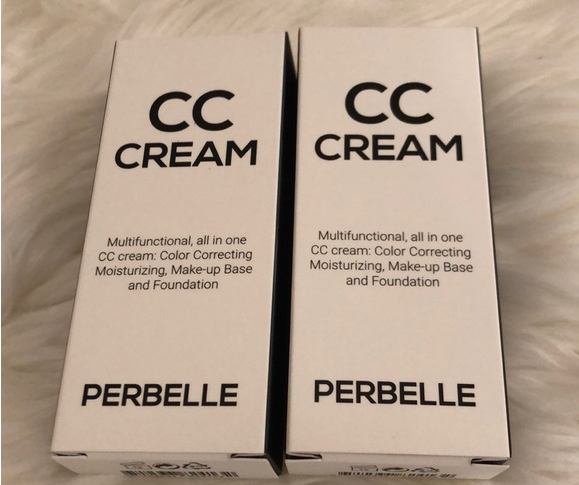Healthy skin is a goal for many people and acne, the most common skin condition, can hurt your confidence. The good news is that there are ways you can help support healthy skin such as with a diet rich in omega-3 fatty acids. Omega-3 fatty acids are healthy fats that provide a host of benefits to your body and skin. In this article, we will discuss how Omega 3 fatty acids can benefit your skin and reduce acne.
What Are Omega-3 Fatty Acids?
Omega-3 fatty acids are a type of fat that our body needs but cannot produce on its own so we must get them from our diet. There are three different types of omega-3 fatty acids:
- Eicosapentaenoic Acid (EPA)
- Docosahexaenoic Acid (DHA)
- Alpha-Linolenic Acid (ALA)
EPA and DHA are mainly found in fatty fish like salmon and mackerel, while ALA is found in plant sources like flaxseeds, chia seeds, and walnuts. Each type of omega-3 fatty acid has different benefits for our skin.
How Omega-3 Fatty Acids Support Healthy Skin
Omega-3 fatty acids have many benefits for maintaining healthy skin. Here’s how they can help keep your skin looking and feeling its best:
- Reduces Inflammation
Inflammatory factors are at play when it comes to many skin issues, acne included. Omega-3 fatty acids can help calm inflammation and reduce some of the redness associated with certain types of acne.
How It Works:
Inflammation and Acne: Acne is a condition that occurs when hair follicles in the skin become clogged with oil and dead skin cells. This can cause pimples, blackheads, and whiteheads to form on the skin’s surface, along with redness and swelling.
Omega-3’s Role: Omega-3s help to reduce the production of inflammatory chemicals in the body. By reducing inflammation, omega-3s may help to reduce the severity of acne symptoms and contribute to clearer-looking skin.
- Maintains Skin Moisture
Omega-3 fatty acids also help keep skin looking youthful, acting as an internal moisturiser to keep skin hydrated, and reduce the appearance of fine lines and wrinkles.
How It Works:
Moisture and Skin Health: The skin is constantly exposed to environmental toxins and irritants. The integrity of the skin’s moisture barrier helps protect against this exposure.
Omega-3’s Role: Omega-3s help your skin’s barrier function by holding onto moisture . This can translate into keeping the skin hydrated, more supple looking, and less dry or irritated.
- Promotes Skin Healing
Omega-3 fatty acids are known to contribute to the maintenance of normal skin but also aid in faster healing of the skin following acne breakout.
How It Works:
Healing and Acne: Acne can leave behind scars and blemishes that take time to heal. Omega-3s helps promote skin repair by supporting the production of healthy skin cells.
Omega-3’s Role: Omega-3s help heal acne wounds by reducing inflammation and improving blood flow to the skin. This speeds up your skin’s healing process & minimises scarring.
- Balances Oil Production
Overactivity of your sebaceous glands combined with chronic inflammation are behind most forms of acne. Omega-3 fatty acids regulate oil production in your skin cells which means less acne!
How It Works:
Oil Production and Acne: When your skin produces too much oil, it can combine with dead skin cells and plug up pores. This can spur acne and other unfavourable skin conditions.
Omega-3’s Role: Omega-3s decrease inflammation and may help balance out excess oil production of your skin’s oil glands so nothing gets clogged.
- Protects Against Sun Damage
The sun’s UV rays can be harmful to the skin and can cause it to age prematurely. Omega-3 fatty acids can help protect the skin from this damage and support overall skin health.
How It Works:
Sun Damage and Skin Health: The inflammation, redness, and damage to the skin caused by UV rays over time can lead to premature ageing of the skin and increase your risk for developing skin cancer.
Omega-3’s Role: Omega-3s are believed to have antioxidant properties that help protect the skin from damage caused by free radicals and oxidative stress. In other words, omega-3s might actually help limit some of the potential after-sun swelling and redness you get from UV exposure.
How to Get More Omega-3 Fatty Acids
To gain the skin health benefits of omega-3 fatty acids, you can either eat more omega-3-rich foods or take supplements. Here’s how to increase your omega-3 intake easily:
- Eat Fatty Fish
Fatty fish like salmon, mackerel and sardines are great sources of EPA and DHA. Try to eat fish at least twice a week for a healthy dose of omega-3s.
- Include Plant-Based Source
If you are vegetarian or vegan, be sure to include good sources of plant-based omega3′s in your diet such as ground flaxseeds, chia seeds and walnuts that are rich in ALA.
- Take Omega-3 Supplements
If you don’t get enough omega-3s from the foods you eat, consider taking an omega-3 supplement. Fish oil and algal oil supplements are two popular types that are rich in EPA and DHA. Always choose a high-quality supplement, and consult a healthcare professional if you have any questions or concerns.
Tips for Incorporating Omega-3s into Your Diet
Here are a few tips to incorporate more omega-3 fatty acids into your daily routine:
Add Flaxseeds to Your Smoothie: Flax seeds can be added in your smoothie for a quick and easy boost of omega-3.
Snack on Walnuts: Keep a handful of walnuts in your pocket as a healthy snack or add them to salads/yogurt.
Choose Fatty Fish for Dinner: Choose fatty fish, such as salmon or mackerel, as your mealtime protein. You can grill, bake, or broil the fish for dinner.
Use Chia Seeds in Baking: Also consider including chia seeds in baked goods like muffins or bread for an extra boost of omega-3s.
Conclusion
Omega-3 fatty acids aren’t just a crucial part of your diet, they also have the ability to transform and improve your skin, particularly if you suffer from acne and inflammatory skin conditions. Helping to fight inflammation, maintain balanced oil production, encourage moisture retention and assist in the healing of any existing skin issues or concerns you may have, it’s easy to see why omega-3s are a must-have when it comes to achieving flawless-looking skin. Simply add more omega 3-rich foods or supplements into your diet for healthier looking and radiant ‘I woke up like this’ results! After all, good skin comes from within.










